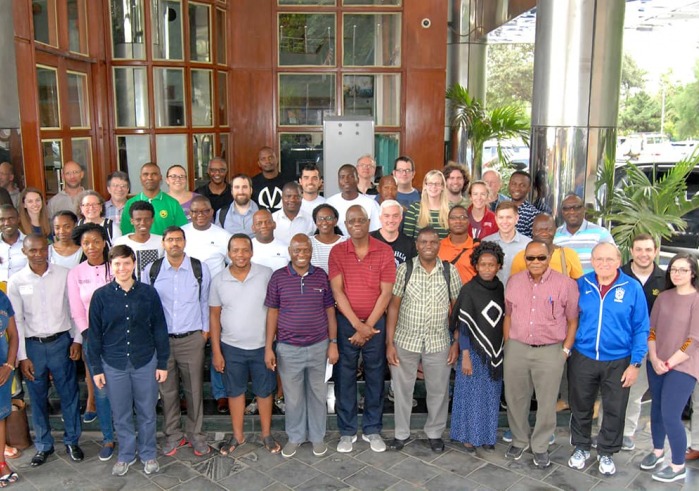Faculty Spotlight: Katherine Perry on Mathematics Research and Outreach in Southern Africa

Katherine Perry, assistant professor of mathematics, is a long-time participant in an annual mathematics conference and workshop in southern Africa. The Southern African Mathematical Science Association (SAMSA) - Masamu workshop brings together mathematicians from around the world to collaborate, and Perry said that one of her favorite experiences from the program are the “simple conversations held over meals about different ideas, cultures, and mathematics.”
That’s similar to Soka, where she is able to interact daily with students and professors from across the globe. Perry, who specializes in graph theory, is currently teaching Linear Algebra, Liberal Arts Math, and Network Science.
This year’s event was originally scheduled for November in Maputo, Mozambique, but because of the pandemic will be held virtually. The workshop also welcomes graduate and undergraduate students, which adds to the diversity of the minds working on the problems. Invitation requirements include being familiar with mathematical proofs, and Perry is hopeful she can help Soka students participate in the future.
We asked Perry to share more about her experiences with the program over the years.
Q: How did you get involved with the Southern African Mathematical Science Association Masamu Program?
A: I first was able to attend during my last year of grad school at Auburn University. The program’s founder, Professor Overtoun Jenda, is originally from Malawi. He wanted to start a workshop that fosters collaboration between mathematicians in Africa and other places, especially the US. About 80 researchers get together every year. It is one of those things that’s hard to do virtually—as we’re all learning this year—so it’s really nice to dedicate 10 days to working together.
Q: Can you describe what you do during those 10 days?
A: There are several problems floating around that don’t have known solutions, so we get together to try and solve them. Often with mathematics, it goes a lot better if you collaborate with others, which is why I’m always telling my students to talk to each other about the homework and group work we do in class.
It can be difficult if you’re trying to do everything on your own. Like Soka, the Masamu Program brings together people from different geographic and educational backgrounds. Everyone has been taught mathematics differently depending on where they’re from, which leads to new ideas when we all come together.
Q: You first got involved with this workshop when you were in graduate school, and we understand that some undergraduate students are eligible to participate as well. How does that work?
A: Yes! Typically, in workshops like this it’s just math faculty, or just graduate students, or just undergraduates. But one thing that’s special about this one is that it’s all levels, which also feeds into this idea of having a diverse group of people. It’s people from everywhere, at various levels in their careers.
In the future, I would like to see Soka students there as well. One class I’ll hopefully teach next year is an introduction to proofs—how to formally make a mathematical argument. Once students have that background, they can go on to look at problems that people don’t know the answers to. Students who have that background and are interested in research would really benefit from something like this. New people are always encouraged to go, and I think it would be really cool.
Q: Has the workshop influenced the way you teach?
A: In mathematics, we are often told that there’s only one way to solve a problem. Not only is the answer 5, but you have to have followed these exact steps to get there. And I don’t like that way of thinking. There are usually multiple ways to solve a problem, and as long as an answer is correct, it doesn’t really matter how you get there. And that’s something I try to emphasize in class.
When students ask for help, I also like to be more vague about the solutions sometimes because I don’t like the idea of saying ‘This is how you have to do something.’ I think that stunts students’ creativity and you need creativity in order to do math well. It’s a balance.
—Nagisa Smalheiser ’21
